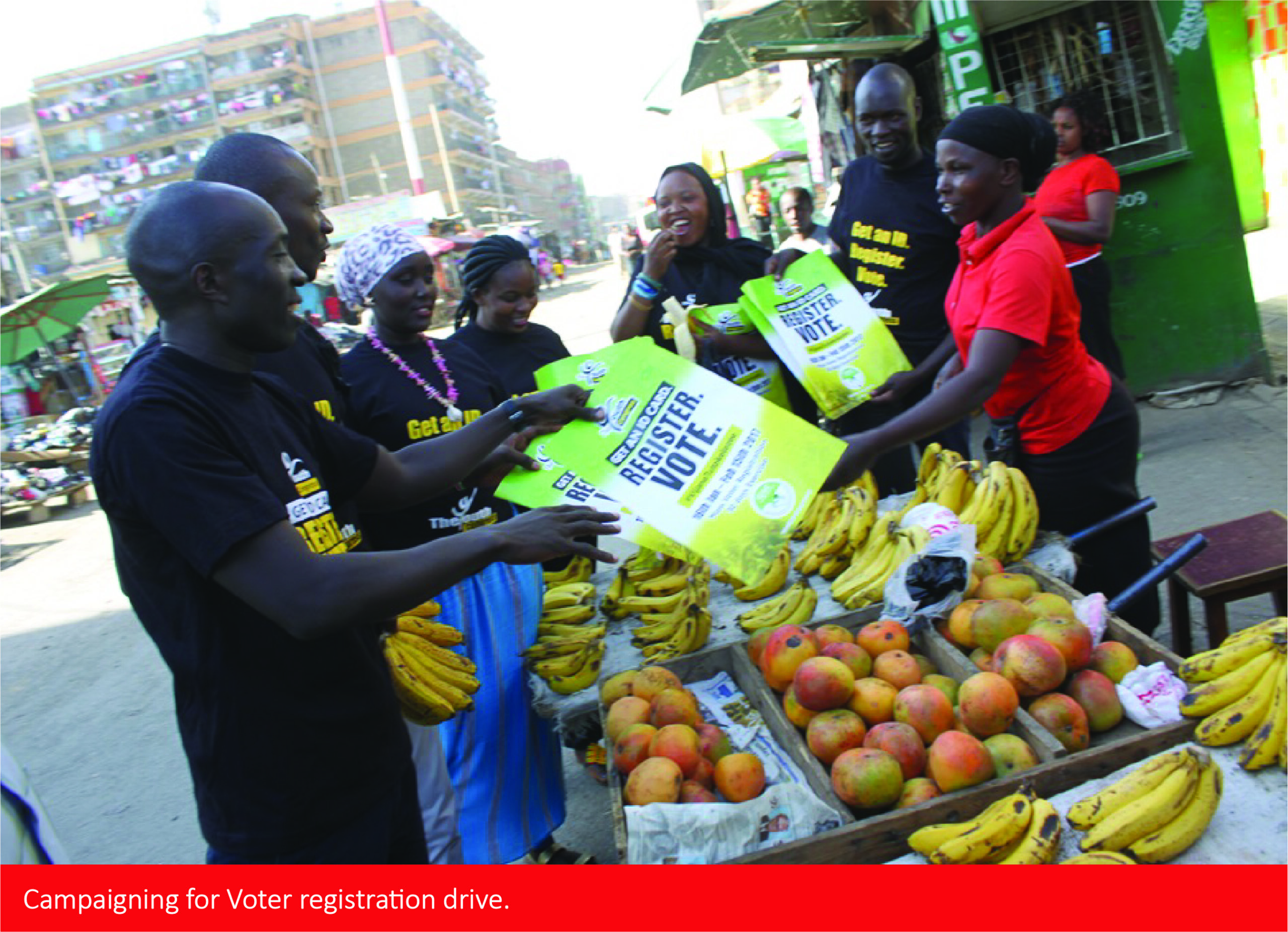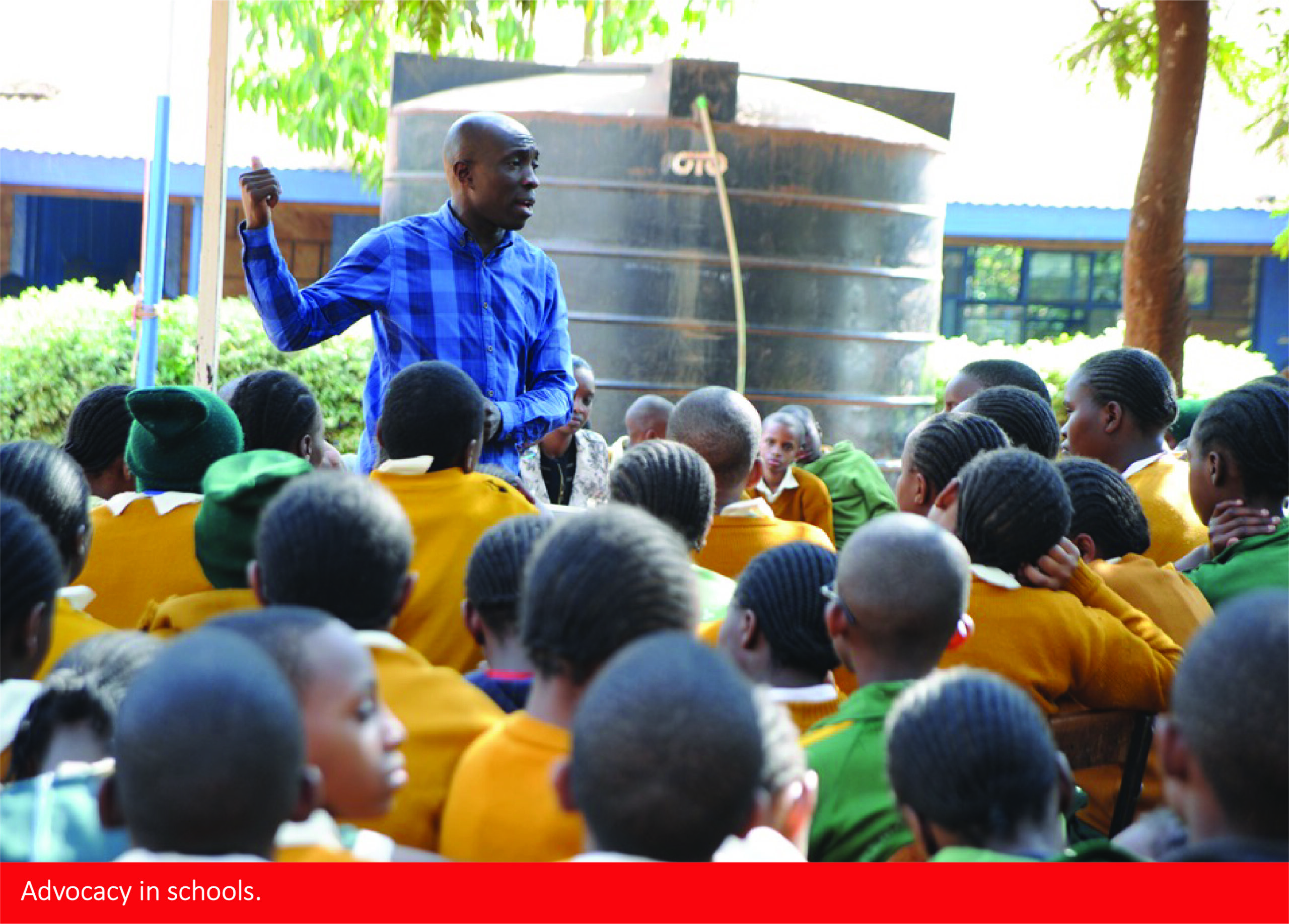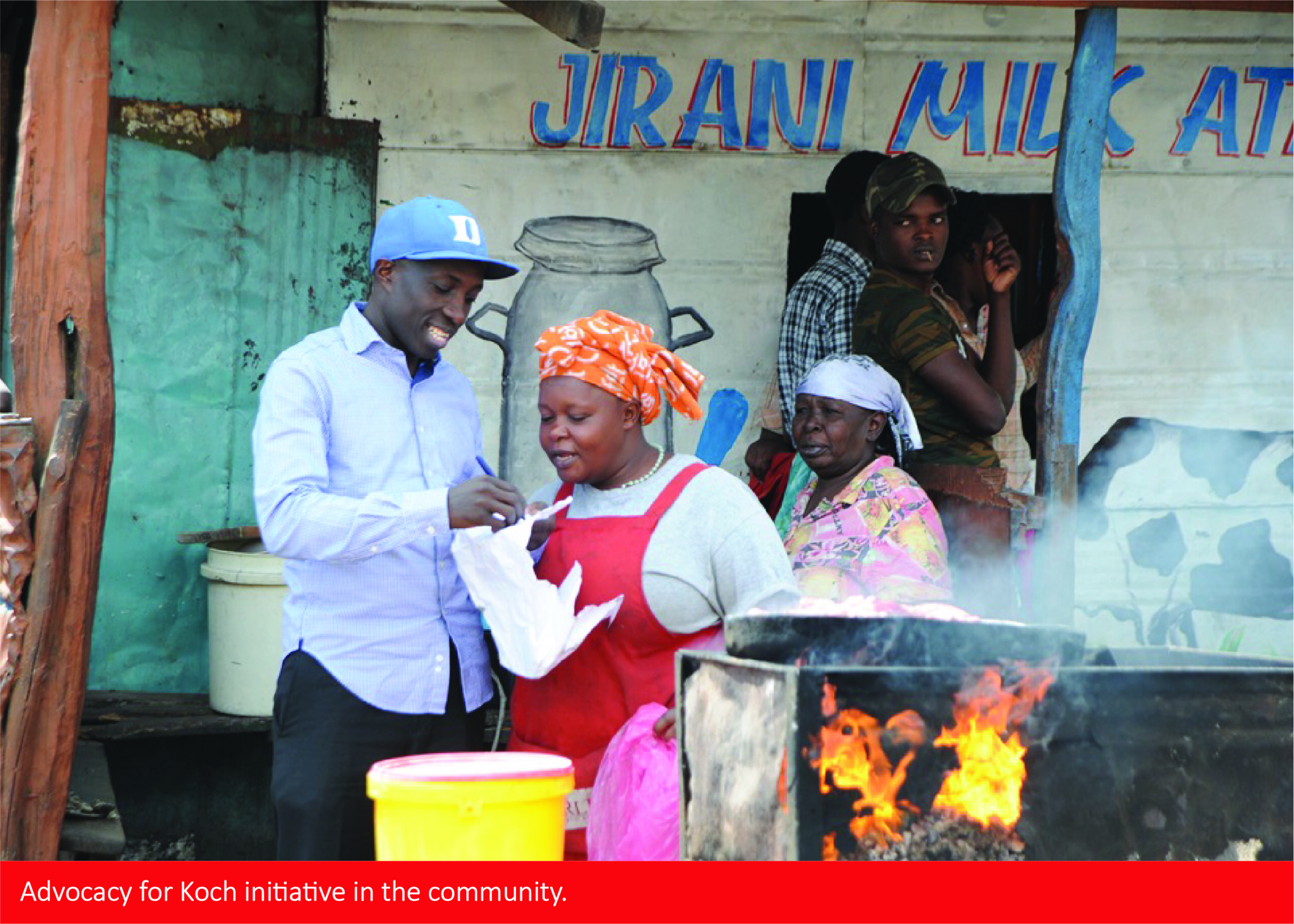Raphael Obonyo, Kenya

Master’s in Public Policy Duke University, United States 2011-2013
Raphael Obonyo was raised in a low-income community in Korogocho in the city of Nairobi. Hailing from a low-income family, his parents and friends worked hard to get him the necessary education. Through the Ford Foundation International Fellowships Program (IFP) scholarship, he completed his Master’s in Public Policy at Duke University in 2013.
“I want to say that I am a proud alumnus of IFP. I consider it to be a transformtive journey where I discovered myself and opened my eyes to enormous opportunism around me. It helped me in advancing my responsibility towards my community for social justice, reflecting on how I benefited from my community in turn and led me to work on social justice issues wherever I am.“
Following his time abroad, Raphael has dedicated his energy and time to many initiatives to uplift the lives of the people in his community such as The Youth Congress, the Koch initiative, and Koch FM, Kenya’s first-ever community radio. In addition to being actively engaged in the community, he is also an advocate for social justice at a global level. He has served as Africa’s representative on the World Bank’s Board on Youth and Corruption, UN Habitat’s Youth Advisory Board, and UNESCO’s Youth Advisory Group. When we spoke to Raphael, he expressed his dream to become Kenya’s President, or the United Nations Secretary General in the future.
This conversation has been edited and condensed for clarity.
How do you feel being named as one of the top 100 influential leaders in Africa?
It has definitely been an exciting journey, but also humbling. I want to see this not as a mark of accomplishment, but more of a call to action where I need to perform better for myself and the continent, as a whole.
How has your journey been after the Ford Foundation International Fellowship Program (IFP) opportunity? How has this helped you personally and professionally?
First of all, I want to emphasize that getting the scholarship was hard, and I was excited when I received it after the rigorous process of applications and interviews. I think, it was an overall experience for me, not just in terms of academics but in community development, it gave me a moment to reflect and understand the expectations of being in the field of social justice. So, it was a combination of academic progression and social justice work. But, I want to say that this is an extraordinary scholarship, where I got the opportunity to choose from the best institutions, and develop skills and knowledge to the best of my abilities. Being in a world class University, I was able to develop networks, and the skills were extremely useful in reviewing the National Youth policy in Kenya, in order to start a number of initiatives.

You first initiative following IFP was Koch FM. How did the idea of Koch FM strike you? What was the inspiration behind it?
Whenever people spoke about Korogocho, the discussion was always in a negative manner, the amount of crime rate or the rate of poverty. But, for us, it was our home, so the question we asked ourselves was how could we change the narrative of Korogocho? We realized that many people were not involved in social justice or advocating for human rights. This is where the idea of community radio came into existence. It enabled more people to get involved on championing good governance and social justice issues. It was the first community radio in the country, many of them warned us against it. But, we actively engaged in the initiative as we wanted to change the narrative of our community.
You are a co-founder and a current board member of ‘The Youth Congress’. Could you talk more about your most recent work in the organization?
With the Youth Congress, we are engaged in two main initiatives. The first one is about supporting livelihoods of young people in informal settlements. Many of the Youth in Kenya today, are pushed into informal settlements as they cannot find jobs, and due to increased urbanization, many of them find themselves in slums. There is a lack of economic empowerment in the talented youth, and we wanted to address that by providing necessary skills and capital to generate income, and it has delivered outstanding results for the youth who cannot fend for themselves. The second project involves the Young people to engage in decision making, as the Youth of today cannot be just silent listeners. We provide skills that involve training the Youth, provide leadership skills, engage with duty-bearers. The Youth must feel that they are not in the margins and we have also developed a number of on-going initiatives such as ‘Youth Aspirers Forum’, ‘Not too young to run’ in order to develop Youth with good values.

One of the biggest focus areas in development has been in Girls Education. How is Miss Koch Initiative helping to shape girls’ education in African in the next few years?
Since 2001, there were a lot of sexual violence cases in the neighborhood, and rape cases. This was destroying the reputation of the community further and we were facing a lot of issues. We had an idea about a beauty pageant, and how it could change the mindsets of the people in korogocho about women. The motto of the beauty pageant was ‘Mobilize community action’. We wanted to show that women can live a dignified life and also championing girls’ education. Through this initiative, people appreciated girls’ rights and girls’ education, we also helped to raise funds through which 1000 girls accessed secondary and college education. In addition to this, the Koch initiative has also helped in advocating for human rights, clean water and sanitation, and housing initiatives. Looking at the success of the Koch Initiative in Korogocho, other low-income areas in Nairobi such as Kibera and Kwangware have started their own community beauty pageant. The Koch initiative has also won many awards across the country and is recognized nationally.
How do you maintain a balance between local and global presence in your work? What are some of the challenges you face?
I believe it is important in being rooted in community work because that is where I began my work, regardless of the spaces I find myself in. But, I also believe that I want to work to create global change. As I have a number of initiatives at the community level, it gives way to new ideas and the feedback that I receive from the community connects me to National and global platforms. I feel that policy is informed by practice and the community aspect of my work helps me connect to this.
If you were the UN Secretary General or the President of Kenya, how would you do to improve the relations between higher education and social justice?
We must find ways in higher education for social justice actors to come, jump in and promote social justice. This involves ensuring that education is available, accessible and affordable as a right and not as a privilege. Nelson Mandela said that “Education is the strongest tool to fight poverty”, But why are people in areas like Korogocho not able to access it? I do think creating more opportunities and spaces will improve relations between higher education and social justice.
